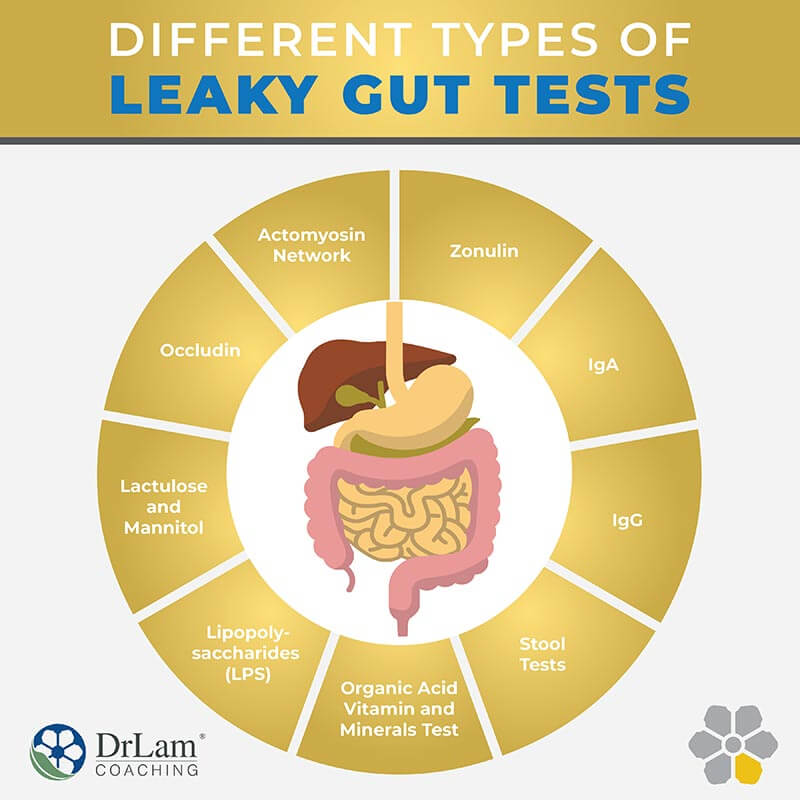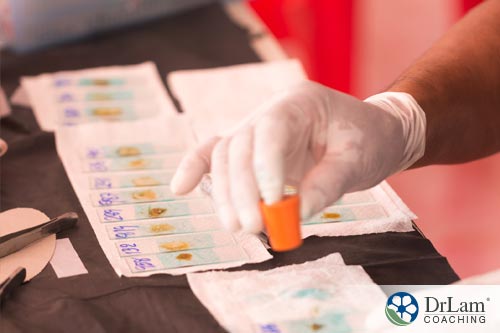 Leaky gut syndrome is a fairly new health problem in terms of the medical profession. Until recently, conventional medicine failed to consider leaky gut as a potential origin of any health conditions. Luckily, that’s now changed and conventional medicine is at least beginning to understand how important your gut is to your health. Around 80% of your immune system resides in your gut and it also determines your level of nutrition. So, it should be obvious how important your gut is to your overall health.
Leaky gut syndrome is a fairly new health problem in terms of the medical profession. Until recently, conventional medicine failed to consider leaky gut as a potential origin of any health conditions. Luckily, that’s now changed and conventional medicine is at least beginning to understand how important your gut is to your health. Around 80% of your immune system resides in your gut and it also determines your level of nutrition. So, it should be obvious how important your gut is to your overall health.
Just as important to your health is the connection between your gut and your brain. These two organs communicate constantly, so the health of one directly influences the health of the other. Basically this means that you can’t have a healthy brain if your gut is unhealthy. So, if you experience leaky gut symptoms, it’s time to do something about them.
Leaky gut syndrome is a condition that occurs when the endothelial cells lining the intestines develop loose junctions or spaces between them. These cells are designed to keep everything where it belongs, from food particles and waste to toxins and other organisms that can harm you. They cover an astonishing 4,000 square feet of surface area inside the intestines and are usually a tight barrier that keeps substances in the intestine where they can be expelled from the body. When you’re healthy, the junctions between these cells are tight, and only allow nutrients to pass through them.
However, when you have leaky gut syndrome, this barrier becomes loose or damaged, allowing substances such as toxins and partially digested food particles to escape into other parts of the body. These molecules are larger than the nutrients that normally passing through the gut barrier. Your body recognizes these molecules as foreign particles that are invading the body. In response, the immune system activates to fight off the invasion and inflammation spreads throughout the body
The gut isn’t meant to be complete impermeable. If it was, then nutrients would never be able to pass across the barrier. However, there are several factors that can weaken the gut lining. For starters, genetics is thought to play a part, which means that some people may be more sensitive to digestive issues. But the biggest issue has to do with your lifestyle.
Many aspects of the modern American lifestyle can weaken the gut lining and bring on leaky gut syndrome. This includes poor nutrition, alcohol use, and stress. All of these factors can bring on inflammation and change the levels of good and bad bacteria in the gut, which can damage the gut lining. Frequent infections and gut parasites can also play a roll.
Some medications, especially if they’re overused, can also injure the intestinal lining. This includes Ibuprofen, aspirin, and other NSAIDs. Antibiotics can also be a cause of leaky gut syndrome because they not only kill the illness causing bacteria, but also the bacteria that help your gut digest food. And since antibiotics are among the most overused medications in the U.S. this means more and more people are dealing with a shortage of good bacteria in their gut and the associated problems.
Many researchers and clinicians believe there are a number of health conditions that can arise from leaky gut syndrome. And leaky gut syndrome doesn’t just affect the immediate area either. There is evidence that it can cause problems throughout the body, some of them very serious. Some of the associated conditions are:

 Leaky gut syndrome is dangerous on so many levels. That’s why there’s been a rush to identify an accurate test for leaky gut. Being able to identify this problem is essential for health professionals if they’re going to address the issue adequately. There are several tests available for leaky gut syndrome, each of them with their own benefits and drawbacks.
Leaky gut syndrome is dangerous on so many levels. That’s why there’s been a rush to identify an accurate test for leaky gut. Being able to identify this problem is essential for health professionals if they’re going to address the issue adequately. There are several tests available for leaky gut syndrome, each of them with their own benefits and drawbacks.
The leaky gut zonulin test is one of the oldest methods of testing for this problem and it works by measuring blood zonulin levels. Zonulin is a protein that controls how large the openings between the lining of the gut and the bloodstream become. If your gut is healthy, the openings will be small, just large enough for the transport of nutrients. But if the levels of zonulin get too high, these openings enlarge. Some of the triggers that lead to an increase in zonulin include candida yeast, gluten, parasites, and harmful bacteria.
If your zonulin levels remain high over time it can damage the microvilli in the gut. This can lead to problems with nutrient absorption and additional health concerns.
However, there have been problems with measuring zonulin as part of a leaky gut blood test. Firstly, taking corticosteroids can lead to false positives because zonulin levels can increase in the presence of these steroids. Secondly, people who are obese or have glucose intolerance may also register false positives. Recent research has also shown that zonulin is no longer present in the bloodstream after one or two hours, which means that this leaky gut test has low reliability.
Even though zonulin testing has been the traditional method of assessing leaky gut, it isn’t the most recommended method currently. More accurate measurements can be achieved by testing for antibodies to IgA or IgG.
These antibodies are produced in the bloodstream. They form when the lining of the gut has been compromised, allowing undigested food particles to enter your bloodstream. When the permeability of the gut increases and these particles and toxins get into your bloodstream, more of these antibodies are produced by the immune system to fight against the invaders in your system. The immune system becomes very sensitive and may start to react to certain foods such as gluten and dairy products that it once tolerated. This can lead to a low-grade inflammatory state that may lead to chronic health conditions. Performing this test for food sensitivities and the antibodies that are produced in response is a very effective way to tell if you have leaky gut syndrome.
 Stool tests are an effective way to measure levels of good bacteria in your gut. They can also determine whether inflammation markers are present, get an idea of your overall gut health, and measure intestinal immune functioning. Stool tests can also be used to measure probiotic levels and the presence of microbes, both good and bad. The presence of pathogens like yeast, unhealthy bacteria, or parasites in stool can also be detected with these tests. These microorganisms can lead to neurological dysfunction, leaky gut syndrome, and chronic conditions.
Stool tests are an effective way to measure levels of good bacteria in your gut. They can also determine whether inflammation markers are present, get an idea of your overall gut health, and measure intestinal immune functioning. Stool tests can also be used to measure probiotic levels and the presence of microbes, both good and bad. The presence of pathogens like yeast, unhealthy bacteria, or parasites in stool can also be detected with these tests. These microorganisms can lead to neurological dysfunction, leaky gut syndrome, and chronic conditions.
When leaky gut syndrome is present, you will have difficulty absorbing nutrients, leading to vitamin and mineral deficiencies. This occurs because the microvilli in the gut are damaged and not able to assist with the absorption of nutrients.
When these microvilli don’t work correctly, some large molecules like gluten are allowed to pass through the gut lining and smaller molecules that should pass through are blocked. The leads to poor nutrient absorption and prevents the detox of antigens produced by the immune system in the face of increasing inflammation.
This test will measure not only deficiencies in vitamins and minerals, but also deficiencies in amino acids that can result when microvilli are damaged. Levels of antioxidants and bacteria, along with information about how your body metabolizes fats, proteins, and carbohydrates are also obtained with this test.
When high levels of organic acids are detected, it signals possible toxic buildup, yeast growth, or nutrient deficiency.
This leaky gut urine test measures how much these two sugars permeate the gut lining. Mannitol is a small molecule and typically easily absorbed while lactulose is larger and not as easily absorbed. Before the test, you’re given a combination of these sugars and your urine is then measured to see how they’re absorbed. Depending on the levels found in your urine, this will indicate how permeable your gut is. You can actually get a leaky gut test kit from your doctor and do this test in the comfort and privacy of your own home before sending off the sample to be tested.
There are some potential problems with this test. One possibility is that it may increase symptoms associated with Small Intestine Bacterial Overgrowth (SIBO) as the sugars help to feed the bacteria.
Another problem with this test is that it can’t analyze the passage of large antigenic molecules. These molecules can cross the epithelial barrier and trigger an immune response. So, the test may indicate if sugar molecules are escaping the intestine, but because these molecules don’t trigger the immune system., this may not be an accurate test of a dangerous level of gut permeability or leaky gut syndrome.
Measuring lactulose also doesn’t give you any information about whether food particles cross the epithelial barrier because the lactulose molecules are much smaller than most food molecules.
esting for the presence of these endotoxins has been suggested as a way to measure the presence of leaky gut syndrome. LPS are large molecules found in gram-negative bacteria. When you have LPS in your body they cause the release of proinflammatory cytokines. So, if you test positive for antibodies to these endotoxins it may show that these macromolecules are passing through the lining of the intestines into the bloodstream.
The use of a Large Molecule Intestinal Permeability Identification (LMIPI) lets researchers and clinicians assess the presence of large molecules as big as food particles. These molecules do trigger an immune response if they pass through the intestinal lining, so it’s important to identify if the gut lining is damaged enough to allow them to pass.
One of the benefits of this leaky gut lab test is that it easily identifies the level and cause of leaky gut. Another benefit is the ability of the LMIPI to find large molecules that may be present in the body when they shouldn’t be. Analyzing LMIPI results also gives a better idea of any dysregulation of the intestinal immune system.
However, there are drawbacks of this testing. One significant drawback is that LPS have a half-life in the blood of only two to four minutes. Unless there are very large amounts of LPS antibodies in the blood, it can be difficult to detect their presence. Steroids also negatively affect the assessment of these antibodies and couldn’t be taken for up to 60 days prior to testing. In addition, current lab values are based on adults only, which significantly limits the usefulness of this test for children and young adolescents.
 Occludin is a large peptide that helps make up the junctions between epithelial cells in the lining of the intestine. If there are antibodies against occludin found on testing, it can indicate that leaky gut syndrome has caused the breakdown of these tight junctions.
Occludin is a large peptide that helps make up the junctions between epithelial cells in the lining of the intestine. If there are antibodies against occludin found on testing, it can indicate that leaky gut syndrome has caused the breakdown of these tight junctions.
The LMIPI test is used to detect antibodies for occludin.
This is a protein complex that helps keep the tight junctions between epithelial cells in the intestinal lining flexible. If tests find antibodies for this protein, it indicates dysregulation of this intestinal lining by cell infiltration.
Leaky gut syndrome is a serious problem for a lot of people, and many suffer for years with it before it’s correctly identified and addressed. Leaky gut symptoms can be distressing, embarrassing, and painful. But even more worrying is the fact that the problems associated with a leaky gut can threaten your health.
If you’re concerned that you may have a leaky gut then, contact our team on +1-626-571-1234 to discuss your symptoms and options. You can also use the Ask The Doctor system to ask a question by clicking here.
© Copyright 2020 Michael Lam, M.D. All Rights Reserved.
Leaky gut will allow undigested food particles, toxins, and organisms to cross into the bloodstream. This triggers an immune response and increases inflammation with compounds that can attack the blood-brain barrier. This eventually leads to substances crossing the blood-brain barrier.

